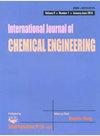A Review of Stochastic Optimization Algorithms Applied in Food Engineering
IF 2.4
4区 工程技术
Q3 ENGINEERING, CHEMICAL
引用次数: 0
Abstract
Mathematical models that represent food processing operations are characterized by the nonlinearity of their dynamic behavior with possible discrete events, the existence of several variables of interest that are usually distributed in space, and the presence of nonlinear constraints. These features require robust optimization methods to resolve these models and to identify the optimum operating conditions of the processes. Stochastic optimization methods, often referred as metaheuristics, are effective and reliable tools to perform the global and multiobjective optimization of process units and operations involved in food engineering. In this way, this paper surveys recent advances and contributions that have applied stochastic methods for solving global and multiobjective optimization problems in food engineering. The description of the most used stochastic algorithms in food engineering is provided including the application of those methods classified as random search techniques, evolutionary methods, and swarm intelligence methods. It was observed that evolutionary methods are the most applied in solving food engineering optimization problems where the genetic algorithm and differential evolution stand out. Finally, remarks on the limitations and current challenges to improving the numerical performance of stochastic optimization methods for food engineering applications are also discussed.食品工程中应用的随机优化算法综述
表示食品加工操作的数学模型具有以下特点:其动态行为具有非线性,可能发生离散事件;存在多个相关变量,这些变量通常分布在空间中;存在非线性约束条件。这些特点要求采用稳健的优化方法来解决这些模型问题,并确定流程的最佳运行条件。随机优化方法通常被称为元启发式,是对食品工程中的工艺单元和操作进行全局和多目标优化的有效而可靠的工具。因此,本文概述了应用随机方法解决食品工程中的全局和多目标优化问题的最新进展和贡献。本文介绍了食品工程中最常用的随机算法,包括随机搜索技术、进化方法和群集智能方法的应用。研究发现,进化方法在解决食品工程优化问题中应用最多,其中遗传算法和微分进化算法尤为突出。最后,还讨论了食品工程应用中提高随机优化方法数值性能的局限性和当前面临的挑战。
本文章由计算机程序翻译,如有差异,请以英文原文为准。
求助全文
约1分钟内获得全文
求助全文
来源期刊

International Journal of Chemical Engineering
Chemical Engineering-General Chemical Engineering
CiteScore
4.00
自引率
3.70%
发文量
95
审稿时长
14 weeks
期刊介绍:
International Journal of Chemical Engineering publishes papers on technologies for the production, processing, transportation, and use of chemicals on a large scale. Studies typically relate to processes within chemical and energy industries, especially for production of food, pharmaceuticals, fuels, and chemical feedstocks. Topics of investigation cover plant design and operation, process design and analysis, control and reaction engineering, as well as hazard mitigation and safety measures.
As well as original research, International Journal of Chemical Engineering also publishes focused review articles that examine the state of the art, identify emerging trends, and suggest future directions for developing fields.
 求助内容:
求助内容: 应助结果提醒方式:
应助结果提醒方式:


